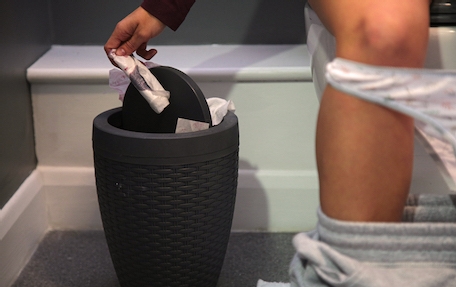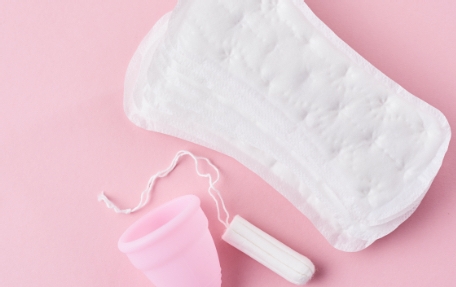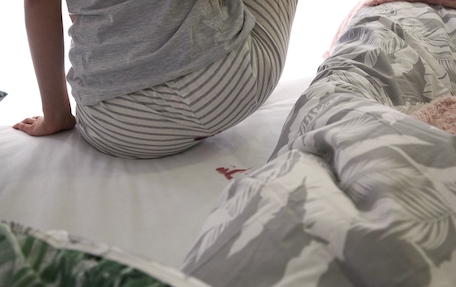First off, well done for making it this far. We're guessing that if you're reading this you want to understand a bit more about periods and what's going on at different times of the month for the girls and young people who have periods in your life, which is excellent! This article will cover the basics around what a period is, why some people have them, what they go through when they have a period, and what support you can offer.
So, let's get some myths busted and the facts straight first. Half the population at some point in their lives will have a period, so you will know someone who has had or is going to have a period. Anyone with a uterus (female reproductive system) will likely have them – it's part of the reason you're alive. This could be your friend, sister, mother, girlfriend, next-door neighbour, the person who sits next to you in lessons…you get the idea.
Second, it's time we all viewed periods differently. Having a period is not dirty or unclean, and it shouldn't be embarrassing. It's a completely natural function which can't be avoided, it's just a part of growing up, and it's okay to talk about it. In fact, it's better than okay to talk about it, it's Bloody Brilliant! We get that it seems like a private thing, which it can be for many girls and young people who have periods. However, think about how much it would mean to someone you care about if they knew they could talk to you if they weren't feeling great.
Lastly, just because you don't have a period doesn't mean you don't need to know. Chances are, a lot of people in your life go through this every month, and by finding out a little more and getting to know the facts you'll be able to support them and it won't all seem so scary. Trust us, they'll appreciate it!
What is a period?
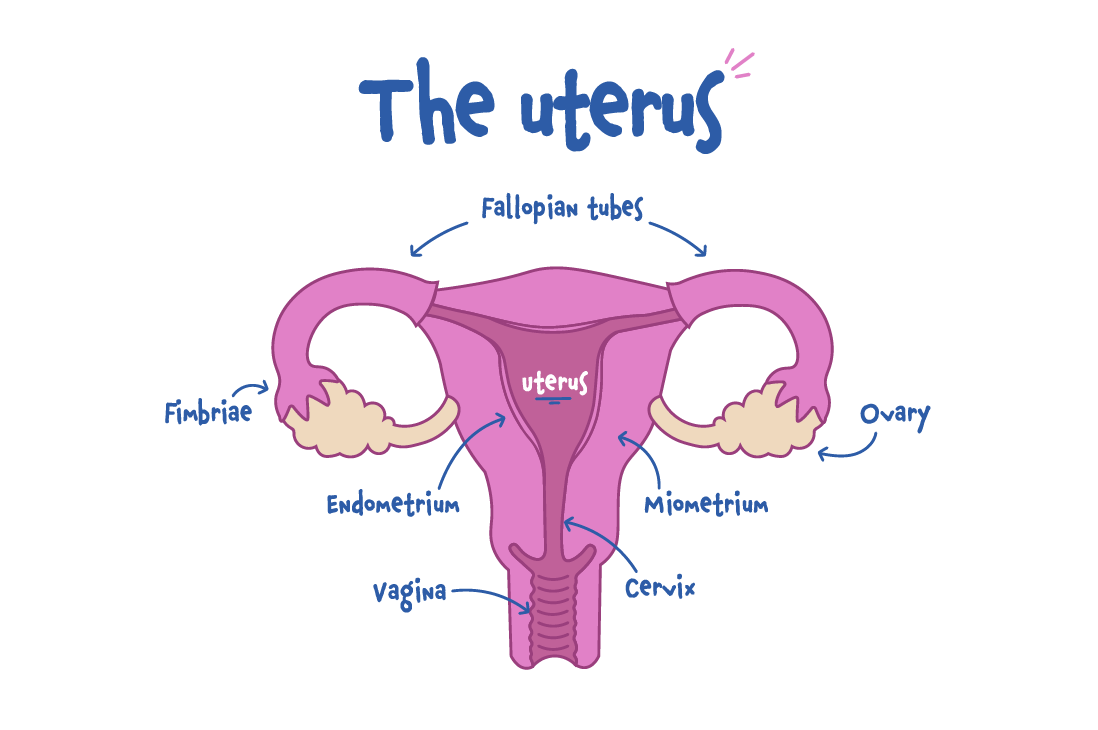
A period (or menstruation, as it's sometimes called) is part of the menstrual cycle. The menstrual cycle lasts a month and is the body's way of preparing for possible pregnancy (now you see what we meant by "it's part of the reason you're alive").
The cycle is controlled by an increase and decrease in a number of hormones which trigger different aspects of the cycle. Hormones are chemicals which your body produces, they flow through your blood and trigger different processes – like little messengers. Hormones aren’t just used during the menstrual cycle, they control a number of different processes in both the male and female body.
During the cycle, the lining of the uterus builds up. This thick, cosy lining is where pregnancy would start if an egg were to get fertilised by sperm. However, if the egg is not fertilised, the lining is no longer needed, so the body breaks down the lining and removes it – that's what a period is, the unused lining of the uterus. See, it's not so weird or gross after all!
Period products
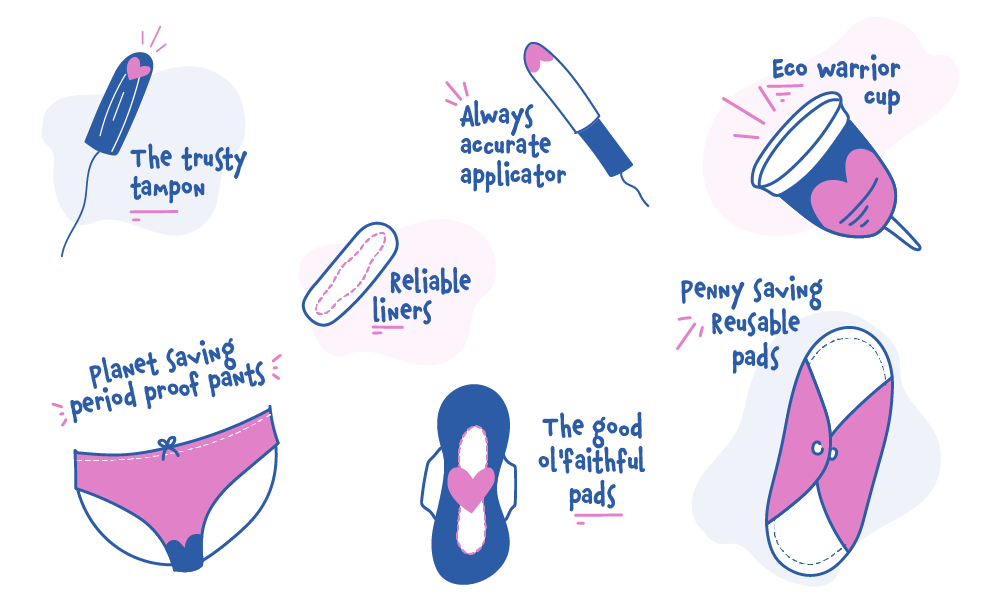
Women, girls and people who have periods use different products to absorb their flow (that's another name for a period). There are all kinds of different products out there; some are used once and thrown away, others are used, washed and reused. They come in all shapes and sizes, and every person has different products they prefer to use while on their periods. You might have heard of tampons and pads? Well, there's also menstrual cups and period pants. If you're curious, we have blogs on these too, it's pretty clever stuff how they all work – click to find out more.
Does it hurt?
The hormones that control the process bring with them many different symptoms which are both physical and emotional. You might have heard of period pain? One of the worst parts of having a period is the pain some women, girls and people who have periods can experience. In order for the lining to break down and be removed from the body, muscles tense and chemical pain signals are released. This can lead to tummy cramps and backache, amongst other hormone-related pain such as headaches. Have you ever been playing a sport or running around and pulled a muscle, or got a cramp? It really hurts right? Well, period pain can feel similar to that, but in your tummy and back.
It's worth pointing out that everyone who menstruates experiences periods differently; the process is always the same, but the effects can be different. Some people experience no pain at all while others experience a lot – the main thing is that you're there to support them, whatever they're going through. If you know someone is really struggling with pain, you could advise them to speak to a nurse or a doctor, as they will be able to help. There's lots more information in our article on period pain – while it's written for girs and young people who have periods, it'll give you lots of information on what's going on. Who knows, you might pick up some tips that you can pass on to someone who is experiencing period pain – they'll thank you for it!
Besides the physical pain, periods can be a bit of a rollercoaster when it comes to emotions. As you now know, the body goes through a lot preparing for and during a period – it's hard work! So, if you know someone going through it, cut them a bit of slack if you notice they're a little grumpy or don't seem themselves. They can't help it, and it's pretty full-on for them too.
Other side effects you might not realise are period related include:
- Greasy skin and hair
- Difficulties sleeping
- Mood swings – feeling grumpy, upset or anxious
- Cravings
- Bloating
- Tiredness
As you can imagine, it's not easy going through all of that, but having understanding people to talk to is a massive support for girls and young people who have periods. Even if you're not quite sure what to say, just listening is great. You can always advise them to speak to a parent or carer, school nurse or doctor If they're having a tough time. Simply understanding if they don't seem quite themselves is a great way you can offer some support. We've got a handy illustration with some great ideas on how you can support someone who's on their period here.
We hope you found all of this interesting, thank you for taking the time to read this to learn a little more about what goes on for so many girls and young people who have a period every month. We dream of a world where girls and young people who experience periods can talk openly about their feelings and experiences without being scared of embarrassment or shame.
Understanding and learning are key to this, so help us out, if you have a friend who doesn't know all this, send them a link so they can support the people around them too.
